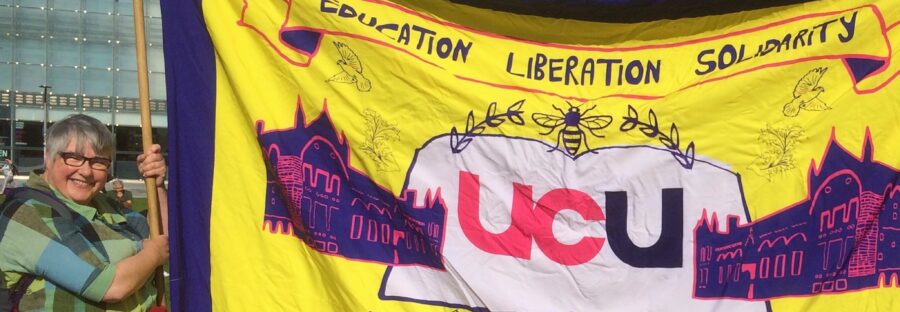Man Met and University of Manchester union members go on strike over pay and conditions
Man Met and University of Manchester union members recently took three days of strike action to pressurise employers for higher pay and better conditions.
Members of the UCU went on three days strikes while their non-academic colleagues in Unison joined for two days.
UCU members claim employers have ignored negotiations with the unions and that strike action became necessary to press for a pay rise, better working conditions across universities, and a reliable pension scheme. They argued that employers are cash-rich but refuse to pay staff more.
UCU University of Manchester branch secretary, Dr Simon Gill, said universities have the financial ability to support staff effectively and meet the demands of the dispute, yet refuse to do so. The secretary claimed that the universities prefer “holding together as a sector”.
He said the pension scheme has been decimated. According to him, workers “are losing quite considerable money potentially in retirement”. He said a pension scheme revaluation should not have taken place.
Gill said the wider context of the strike was to ascertain a future for universities that allows academic staff to support students’ learning adequately, where staff are well paid with a secure pension and in the right environment to educate students.
He told the Northern Quota that management had refused to negotiate with the union.
“They refused to come to the table to talk about these things, they refused any presentable discussions,” he said.
He noted that the cost-of-living support provided by University of Manchester was a clear indication that there is sufficient money in the sector to meet uplifting pay and other demands of the dispute. He alleged that university managements allow the current political machinery to keep decimating everybody.
In an interview with Northern Quota, the General Secretary of the UCU, Jo Grady, said with £40bn in reserve in the sector there was money available for a pay rise and to increase pensions. She stated rather than offering staff a pay rise, universities are setting aside £4bn to construct new buildings.
Grady hoped it would not come to it but stressed the union’s willingness to boycott assessment if it is required. She said the three-day strike was to show that issues relating to an inflation pay rise, workload reduction, and end of casualisation must be resolved.
Julie Wilkinson, ex-secretary of UCU Man Met, said the strike which pulled two unions together at the same time demonstrated how people were supporting each other in a bad situation.
She said: “People are struggling with the cost-of-living increases and with its effect on our wages”. Wilkinson said Unison members were on “very low pay” and claimed management was struggling to keep wages in line with the minimum national living wage.
Wilkinson said: “It’s [the university] cash-rich, which means it can afford an increase for us. But we are not getting a fair pay deal.”
She argued that public sector workers were not earning enough to feed their families and heat their homes and were paying the price for the mistakes of Liz Truss and the Tory government for many years. .
“We want to pay more to our workers, we think our workers deserve more but they are not paying. Who is stopping them?”, she said.
Maria Brown, UCU convenor at Man Met, believed that since 2008 staff pay has kept going down because of inflation. She said a one or two percent pay rise was worthless because inflation is far higher. Brown stated that the union had reasoned with UCEA about raising the staff pay but had not listened. She said the strike was to show “how unhappy we are”.
In a statement, Man Met said:
An MMU spokesman said the university was ‘disappointed that our local Unison branch has chosen this course of action. We fully appreciate the issues that the cost of living crisis creates.
“Manchester Metropolitan is part of the national pay negotiations which has resulted in an award at this university which ranges from 3% to 7.5% depending on current salary.
“However, the university has decided to award an additional 2% on top of this in recognition of the efforts colleagues have made over the last 12 months.
“This will mean our lower-paid colleagues will be receiving a pay rise of around 9.5%.’


